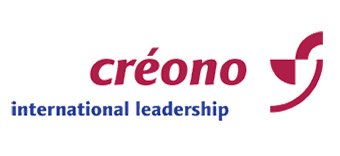Krafttiere im Projektteam
Symbolik, Stärken und Inspiration sowie Identifikation und Teamgeist für den Projekterfolg
Krafttiere sind eine inspirative Ressource für das Team und den Projekterfolg. In der Welt der Projektteams ist das Zusammenspiel verschiedener Charaktere entscheidend für den Erfolg. Menschen haben unterschiedliche Stärken, Talente und Schwächen, die sich idealerweise ergänzen. Eine kreative und inspirierende Art, über die Rolle und den Beitrag einzelner Teammitglieder nachzudenken, ist die Betrachtung von Krafttieren. Diese Symboltiere repräsentieren bestimmte Eigenschaften und Energien, die uns dabei helfen können, unsere eigenen Fähigkeiten zu erkennen und die Dynamik im Team besser zu verstehen und für den Projekterfolg zu nutzen.
Krafttiere für die Teamdynamik nutzen
Die Idee der Krafttiere ist nicht nur eine Metapher, sondern kann auch praktisch angewendet werden.Wenn Teammitglieder ihre persönlichen Krafttiere erkennen und verstehen, kann dies dabei helfen, Rollen und Aufgaben besser zu verteilen. Projektmanager können diese Symbolik nutzen, um eine ausgewogene Teamstruktur zu schaffen, bei der die individuellen Stärken jedes Mitglieds zur Geltung kommen.
Dass Symboltiere bestimmte Eigenschaften und Energien repräsentieren, ist oft kulturübergreifend zu finden und in der Tradition zehntausende von Jahren alt, also Menschheitswissen und damit für jede/n zugänglich.
Gerade in heterogenen, interkulturellen und internationalen Teams haben Krafttiere damit hohe Wirkung für Identifikation und Zielorientierung im Projekt. Neben den individuellen Krafttieren kann das (Projekt)Team auch ein einheitliches Tier für die Gemeinschaft der Arbeitsgruppe oder das Vorhaben oder Produkt finden. Die Motivation und das Commitment können über diese Rückanbindung erheblich gesteigert werden. Auch zur Entscheidungsfindung in Risiko-, Krisen- oder kniffligen Situationen können diese Energien und Qualitäten der Krafttiere inspirieren und Zugang zu intuitiven Ressourcen schaffen.
Hier erforschen wir, welche Krafttiere in Projektteams vorkommen könnten, welche symbolische Bedeutung sie haben und wie sie das Team unterstützen können. Krafttiere können eine inspirative Ressource für das Team sein und für den Projekterfolg.
1. Der Adler: Der Visionär
Der Adler ist das Symboltier für Weitblick, Strategie und Führung. Er hat die Fähigkeit, hoch in die Lüfte zu steigen und das Gesamtbild zu sehen. Ein Teammitglied mit dem Krafttier Adler ist oft der Visionär des Teams. Es sieht nicht nur, wo das Projekt gerade steht, sondern auch, wohin es gehen könnte. Der Adler erkennt Trends und Herausforderungen frühzeitig und kann das Team auf mögliche Gefahren oder Chancen hinweisen.
- Stärken: Weitblick, strategisches Denken, Problemerkennung
- Herausforderungen: Neigt manchmal dazu, sich zu stark auf das große Ganze zu konzentrieren und Details zu übersehen.
2. Der Bär: Der Beschützer und Umsetzer
Der Bär steht für Kraft, Ausdauer und Stabilität. In einem Projektteam übernimmt das Krafttier Bär oft eine Rolle als Beschützer und Unterstützer. Dieses Teammitglied ist zuverlässig und sorgt dafür, dass Aufgaben solide und gründlich erledigt werden. Mit seiner geduldigen und fokussierten Art meistert der Bär auch komplexe und langwierige Aufgaben.
- Stärken: Stabilität, Verlässlichkeit, Umsetzungsstärke
- Herausforderungen: Kann sich manchmal schwertun, neue Wege einzuschlagen und anpassungsfähig zu bleiben.
3. Der Fuchs: Der Taktiker und Problemlöser
Der Fuchs ist ein Symbol für List, Flexibilität und Anpassungsfähigkeit. Im Projektteam findet sich das Krafttier Fuchs oft in der Rolle des Problemlösers und Taktikers wieder. Der Fuchs erkennt schnell die Schwächen eines Plans und hat stets kreative Lösungen parat. Er ist extrem anpassungsfähig und kann sich gut in neue Situationen einfühlen.
- Stärken: Kreativität, Anpassungsfähigkeit, schnelles Denken
- Herausforderungen: Kann dazu neigen, den Fokus zu verlieren und sich zu sehr auf Details einzulassen.
4. Der Delfin: Der Kommunikator und Teamplayer
Der Delfin symbolisiert Intelligenz, Freude und Kommunikationsfähigkeit. Ein Teammitglied, das sich mit dem Delfin identifiziert, ist oft der Kommunikator im Team. Es bringt Freude und Leichtigkeit in die Zusammenarbeit und sorgt dafür, dass die Kommunikation im Team reibungslos verläuft. Der Delfin fördert ein positives Klima und motiviert seine Kollegen.
- Stärken: Empathie, Kommunikationsfähigkeit, Teamgeist
- Herausforderungen: Kann Schwierigkeiten haben, Entscheidungen zu treffen oder kritische Kommentare zu äußern.

5. Die Eule: Der Wissende und Berater
Die Eule steht für Weisheit, Wissen und Intuition. Ein Teammitglied mit dem Krafttier Eule bringt oft tiefe Einblicke und analytische Fähigkeiten ins Projekt ein. Es kann Zusammenhänge schnell erfassen und hilft dem Team, fundierte Entscheidungen zu treffen. Die Eule arbeitet oft im Hintergrund, ist aber für die Qualität und Tiefe des Projekts von unschätzbarem Wert.
- Stärken: Analytisches Denken, Intuition, Tiefgang
- Herausforderungen: Kann sich manchmal in Details verlieren und sich schwer mit spontanen Veränderungen tun.
Krafttiere im Projekt – Praktische Tipps zur Umsetzung
- Selbstreflexion fördern: Ermutigen Sie die Teammitglieder, über ihre eigenen Eigenschaften und ihr Krafttier nachzudenken.
- Rollenzuweisung: Ordnen Sie Aufgaben und Verantwortlichkeiten so zu, dass die natürlichen Stärken jedes Krafttiers berücksichtigt werden.
- Offenheit und Verständnis: Fördern Sie eine Teamkultur, in der jeder die Krafttiere der anderen respektiert und deren Bedeutung versteht. So wird ein harmonisches und produktives Team geschaffen. Krafttiere als Vorbild: sie sind sich sozusagen immer wohlgesonnen – selbst wenn sie im realen sichtbaren Leben Beutefeinde sind.
- Ermutigen Sie das Team sich gemeinsam ein Krafttier für das Projekt / das Vorhaben zu suchen. Dies erhöht Identifikation, Commitment und Ziel- sowie Prozessverständnis ungemein: Wo wollen wir hin? Wie kommen wir dorthin? Wie arbeiten wir im Team zusammen? Welche Werte und Überzeugungen sind uns dabei wichtig? Wie gehen wir vor bei kniffligen Entscheidungen? Wie unterstützen uns Krafttiere, die Balance zu halten?

Fazit zu Krafttieren im Projekt
Krafttiere können als inspirierende Symbole dabei helfen, die verschiedenen Rollen und Persönlichkeiten in einem Projektteam zu verstehen und zu wertschätzen. Ob Adler, Bär, Fuchs, Delfin oder Eule – jedes Krafttier bringt seine eigenen Qualitäten mit, die zum Gelingen eines Projekts beitragen können. Wenn wir die Vielfalt im Team als wertvolles Potenzial anerkennen, können wir nicht nur erfolgreicher, sondern auch erfüllter arbeiten. Ein gemeinsames Krafttier erhöht die Arbeitsenergie und –moral und unterstützt dabei, intuitive Wissensquellen in unbekannten Terrains miteinzubeziehen für den Erfolg des Vorhabens und des Teams. Krafttiere sind eine inspirative Ressource für das Team und den Projekterfolg.
Nutzen Sie die Krafttiere als ein Werkzeug zur Selbsterkenntnis und Teamentwicklung – und sehen Sie, wie Ihr Team neue Höhen erreicht!
Wir unterstützen Teams dabei, ihre Krafttiere zu entdecken, deren Qualitäten und Energien zu bestimmen sowie im Transfer umzusetzen, damit sie gewinnbringend im Projekt, dem Vorhaben, dem Team eingebracht werden können.



